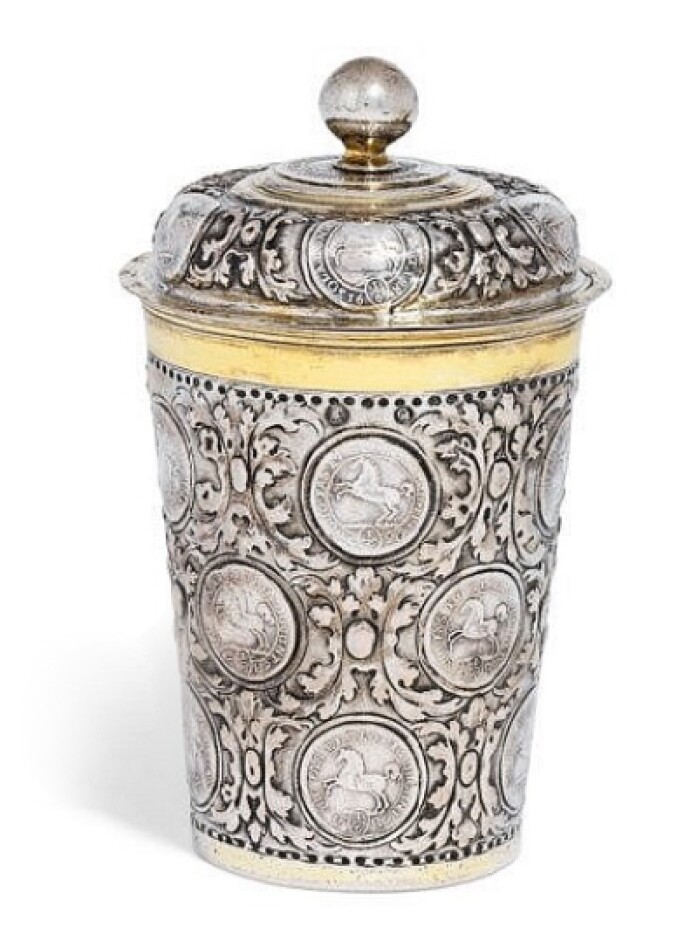Breslau, now Wrocław in south-western Poland, was situated favourably at the cross-roads of two major trading routes. The city suffered heavily during the Thirty Years' War, but towards the end of the 17th century it experienced an economic revival and also became a centre of learning and literature.
Christoph Müller (1655-1735) was born in Breslau and was the father of the goldsmith Johann Christoph Müller. His surviving work includes a variety of objects, including a münzdeckelbecher (a beaker set with coins), perhaps pertinently, covered with 1/3 thalers issued by the Brunswick duchies, the obverse of which features a leaping horse (the Saxon Steed).
